Jiro Yanase’s betcover!! seems to be taking a great leap forward now. Since the release of the album Tamago (卵literally meaning egg) at the end of 2022, his band has been touring around the country, scattering their feverish sound at an elusive speed. Something unmeasurable and uncontrollable is being renewed in their music. Something in their music now makes one want to talk about it enthusiastically. The band’s performance has received enthusiastic responses from overseas review sites. It is no wonder that their music, which had chewed up folk music and has a distinctly Japanese flavor, and the band’s performance, which shines through their advanced playing techniques, have transcended national borders and reached the core of overseas listeners.
He talked about an album Jikan (時間, literally meaning time), which was released in 2021 after leaving avex, as well as about Tamago, which was released just one year after the release of Jikan. We talked for a total of two hours at a kissaten, Japanese-style coffee shop, in Sangenjaya, where time has seeped into the walls and chairs, sometimes eating Shogayaki (Japanese ginger pork) set meals, smoking cigarettes, and drinking cream sodas.
Despite his words that he did not want this piece to sound typically like “music,” Jiro Yanase spoke to us about the ideal form of sound and words as lyrics.
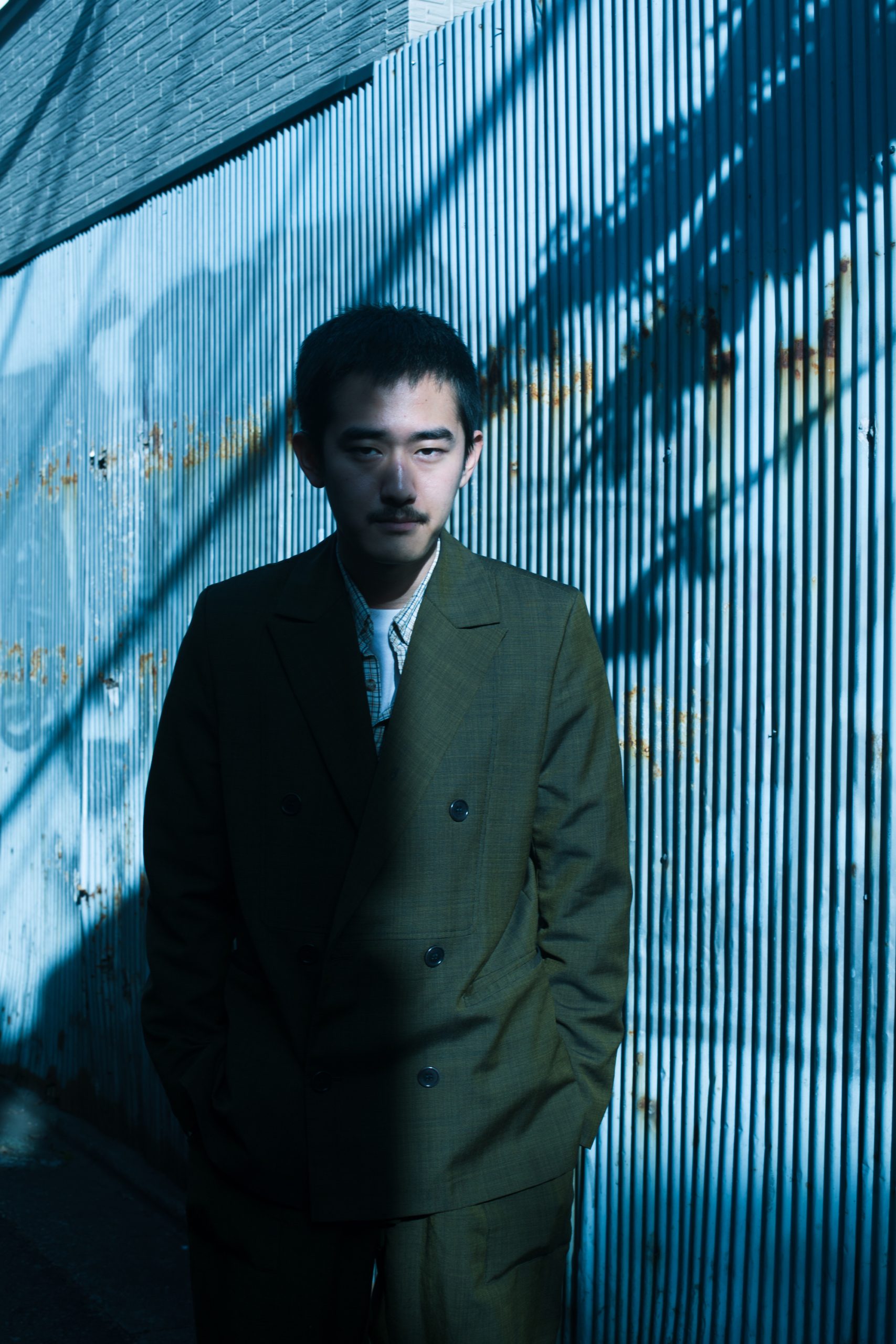
Jiro Yanase
Singer-songwriter from Chofu City, Tokyo. Vocal of the rock band
betcover!!
https://linktr.ee/betcover
The ethereal sound world is created by sound as a “band.”
–Could you briefly outline your activities since you formed a band you are leading now?
Jiro Yanase (Yanase): I quit avex in January 2021. I invited Yuransen to do a live show and to play the songs included in Jikan, which was when I started playing with current backup band members. I had been on a label since 2016, and they were paying me for everything, but I didn’t own the copyrights of my works, so I thought it would be great to make the album with my own money so that I could be “responsible” for my own work. Also, I had some money saved up then, so I had the engineer I had been working with since the song “Seventeen” record the album Jikan at HMC Studios.
–What is the most significant change you have experienced since you left “avex”?
Yanase: We have become more of a “band,” and I feel more like “I am the boss.” I used to think about everything from songwriting to the sound arrangement, but now I often let the band members play independently. I can’t just tell Riki (Hidaka), “Do this” (laughs). So I usually tell him, “Here are the chords,” and let him swim free in it. As long as a theme is shared within a band and everyone’s sense of rhythm matches the theme, there is no problem.
–Did you have any changes in your own creative mindset?
Yanase: No, that hasn’t changed at all. There has not been a significant change in my feelings since I was working on “異星人.” In the first place, I have always thought it was okay for the music itself not to have a verse, bridge, and chorus. I use these sounds because I want to express myself in this way. My mindset is like, “I want to use this sound because I want to express something in this way.” So what I want to do has been consistent and has not changed.
–However, what you really want to do have become more nuanced and clear, and you have become able to express it more straightforwardly, right?
Yanase: Yes, you are right. When I was in avex, I was a bit more major-oriented. I was like, “Now that I’m on a major label, I want my songs to sell. (Laughs.)” I wanted songs that would sell. But then I found out that I could not intentionally create a kind of music that would sell well at that point in my career. I realized that I didn’t have that kind of talent. So, I made Jikan in a way that I could maximize what I could do at the time.
–In that sense, the two years since the release of the album Jikan may have been a period for building up the band’s sound with the current members, right?
Yanase: That’s right. It was around that time that the members became the current lineup. Basically, we got together in a studio and recorded all the sounds at once. We overdubbed vocals, and for some songs, we broke down all the drum parts and recorded the sounds of these, respectively. The whole recording process took about ten days, and it was all about experimentation.
Also, I was trying to make the whole album as one work of art. I had an overall concept in my older works, but each song was more independent. But in this work, the themes and images I wanted to create grew, and the concept itself determined the whole. So in that sense, I think the current work is much catchier and poppier than the old ones.
–Maybe you are right from a certain point of view.
Yanase: I’ve become more honest than before. You have interviewed me many times, but I think I was more aggressive when we first met. But I don’t care about putting on a front anymore. Now I say “I’m sorry” every day. So I think that mentality has come to the forefront this time.
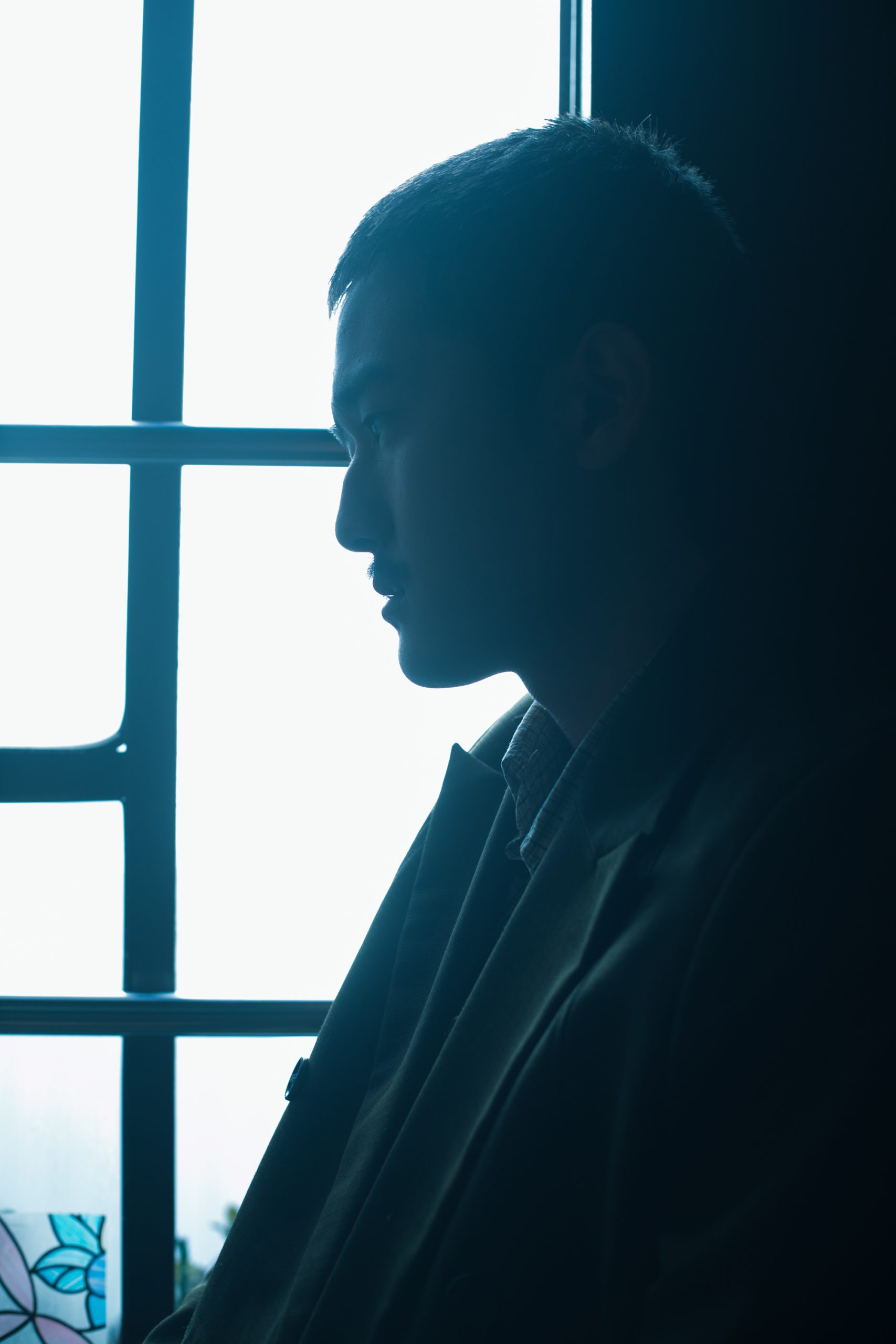
Creating a “soundtrack for an imaginary drama”; What distinguishes Tamago from previous productions
–What kind of blueprint did you have in mind when you were making this album?
Yanase: I always wanted to make “accompanying music.”
–Accompanying music?
Yanase: I wanted to make a “soundtrack for an imaginary drama,” in which our music is not the main focus but rather an adjunct to some story. That’s why this album doesn’t have a substantial impact. But this lack of impact was essential to me this time.
–Indeed, especially with this album, I felt like I was here and actually listening to Tamago but not hearing it. There is a sense of floating, of mixing the past and the future, of not being bound by time. I wanted to know why.
Yanase: For some reason, Jikan was well received overseas as well. With that album, I think I could express what I wanted to do at that time. But this time, I wanted to create something that was not catchy. I wanted to create more space and gaps in the sound.
— Why was that?
Yanase: I wanted to convey a “worldview” of the work, or rather, scenes my works depict more clearly. What I wanted to create was not a rock opera but rather band music. I wanted to make something like “accompanying music,” which cannot really be “accompanying music” itself.
–Something like Vincent Gallo’s albumWhen for example?
Yanase: Yeah, kind of. It’s pretty much that type of music. Or I referenced the ambient albums of bands like Dirty Three, which includes Nick Cave and the Bad Seeds member Warren Ellis. Their music brings to mind the scene the piece is trying to depict. Riki taught me some of this kind of music. Riki taught me a lot about this type of music back then.
–What else did he teach you?
Yanase: I also learned John Cage’s ambient music and the music of Japanese singer Kan Mikami. His lyrics were terrific.
–So you wanted to create a work that evoked the scenery of a story, right?
Yanase: Yes, I had told the people at HMC Studio, whom I had trusted since my days at avex, that I wanted to make accompanying music, but they said, “You’re not ready for it yet.” I was told that I should work on that kind of music only after I had adequately created a soundtrack-kind of music myself and people had well received it, because that is, so to speak, to make “the kind of music that doesn’t sell.” After that, I was able to realize what I really wanted to make with the album Jikan. So this time, the timing finally came, and I decided to do what I wanted.
The worldview of sound that I have always wanted to create has been influenced by things other than music, such as my love of the “Noda Map” stage show and the “Inugami Clan” series, but I couldn’t help feeling that the music with a “Showa-ish” feel was performed by those who were not of the Showa generation. However, I thought that the music on this album sounded like music from the year 2022. It’s kind of mysterious.
Well, sometimes I do think that I like the music of that time, but it’s not that I admire it and want to do it squarely. I believe that is what distinguishes me from those of nostalgia. When I look at someone trying to reproduce the mood of the Showa period as it was and to be a person of that period, I think of this someone’s work as “nostalgia.” This may not be the right way to put it, but I’d rather “use” or “utilize” the sounds of that era.
–If one aims to reproduce an image that already exists, as you say, the one will end up being nostalgic. But you originally had a vision and a worldview that you wanted to achieve, and you cite it as an element to realize that vision, right?
Yanase: Yes. I choose something just because it fits what I want to create. I also mix in a lot of music from various eras. To be honest, I usually have multiple sources of inspiration for every song. I put at least three homages for each piece. And they are from different eras and countries.
–That’s interesting.
Yanase: I don’t enjoy old music or movies as something “old.” And that’s true for everyone, regardless of age or anything else. When you see a samurai drama for the first time, it’s fresh for everyone. That’s something like this.
I was able to bring out my current mode, so I am most satisfied with each song, and this is probably the most serious work I have ever done. Jikan was more spontaneous in a good way. There had always been a bit of a “comedic element” to my previous works, but that’s not the case with this one.
–I thought “Tako-to-ika-no-samba(タコとイカのサンバmeaning octopus and squid’s samba)” was a great song with such a great title.
Yanase: Well, I actually made that one at the saddest time of my life. So the most emotional one. Also, I wrote that song at the end. I was like, “Wow, it makes me cry. This is it!” That’s what it was like.
–The reference songs on the Spotify playlist were of various genres. Among them, the most impressive was L’arc~en~Ciel’s “Kasou (花葬literally meaning Flower Burial).”
Yanase: Yeah. As for “Barabara(ばらばら),” I didn’t think too much about the lyrics in the first place. It was initially a very slow song, but when I was thinking about the arrangement, I happened to hear L’arc~en~Ciel. The words “scattered in pieces (ばらばらにちらばる)” in the lyrics of “Kasou” were linked to the lyrics I had already written for the song “Barabara,” so I decided to use a similar tempo to that of “Kasou.”
–Oh, so you were influenced by the tempo of that song. What kind of texture did you aim to create throughout the album?
Yanase: This is connected to the theme I have been talking about, but I want to create something that is not affected by the times, something that is not really related to the times. What I want to express is the smell of embarrassment and humanity. Ultimately, I want to tell a story about people’s “emotions” and “immorality”. A story that anyone might have experienced. I want to tell a story that might make people say, “This kind of thing happens, doesn’t it?”
–You wanted to depict human beings themselves, right?
Yanase: That’s right. To create something that has “universality,” you have to create something that has “timelessness.” But when I focus on what I want to express in my music, it no longer matters what period it is. I am not that heavy. I am light. I can’t say anything meaningful, and I’m not great enough to speak for anything. Maybe I can do that when I’m in my 60s or something. That’s why I don’t make myself the main subject of the lyrics but rather sing it as a story.
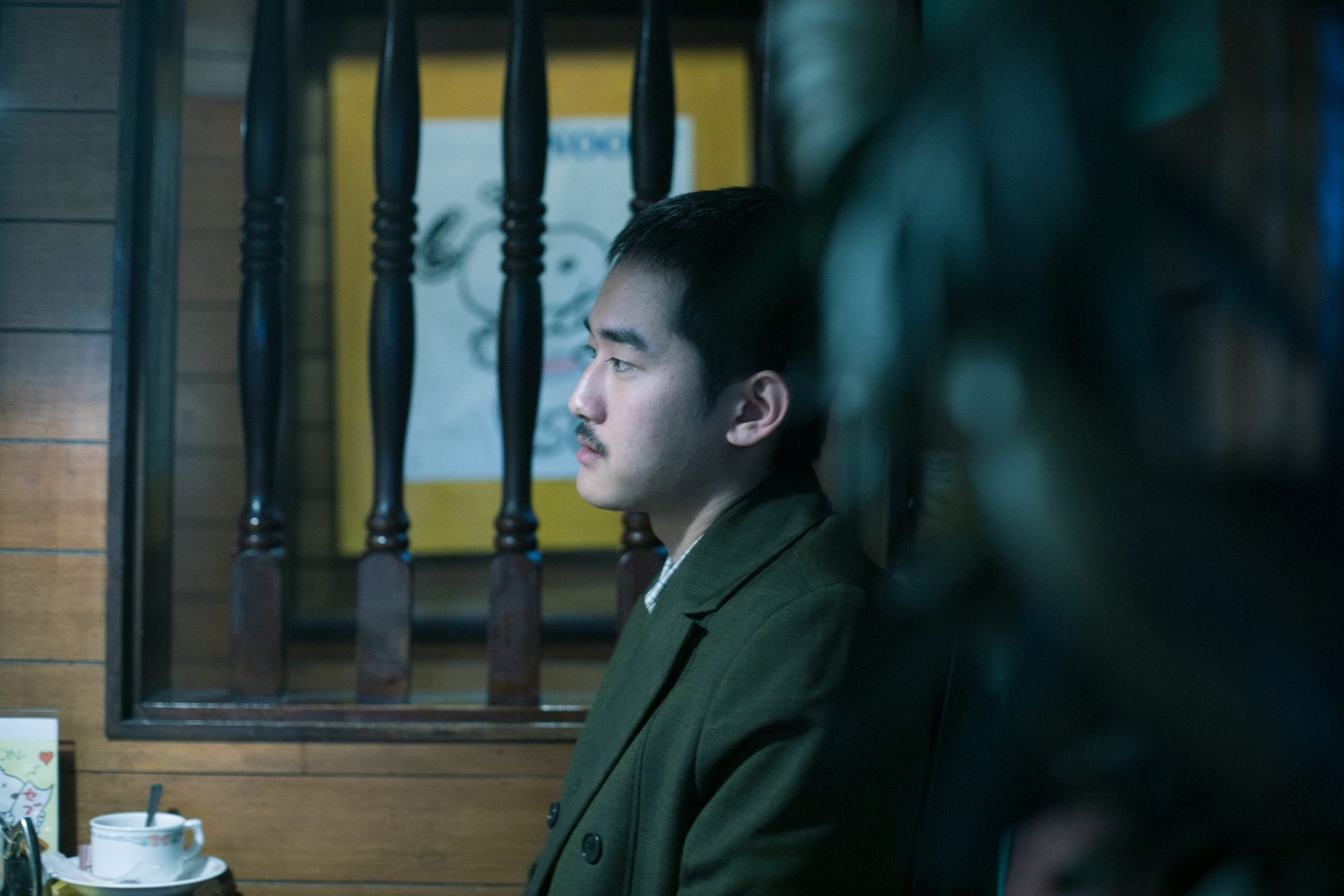
I don’t like metronomes because I think, “Why do you have to make an axis for playing music? “
–Regarding the sound image, that album has a mysterious sound with a sense of distance, as if it is heard from somewhere far away, doesn’t it?
Yanase: Yes. I used ambient, classical, and jazz recordings as references. Classical and jazz recordings are done with a single microphone. Drums are especially important. Typically, we would use one microphone for each percussion. But for this album, I basically used only one microphone, and only supplemental recordings were made for the parts that were not enough. So most of the sound was recorded from outside of the band’s performance.
Some bands like 54-71 in and around the 2000s used this kind of recording style. If you listen to their sound sources carefully, they seem not too heavy. And I used the sound texture of such bands as a reference.
–Why did you aim for such a sound image?
Yanase: Nowadays, drums have become less and less meaningful because of the evolution of computing technology in music composition. Nevertheless, people practice with a metronome, focusing on that “clicking sound.” If so, I wonder if it is worth it for humans to play drums with their hands.
By not using a metronome, the sound becomes much less modern and more fluctuated. Unfortunately, we are not very good at keeping tempo, so sometimes our performance rushes and sometimes gets slower (laughs). Some people might find that uncomfortable, but I think the live recording piece sounds better for those who don’t.
–So you want people to listen to that fluctuation, right?
Yanase: Well, I hate metronomes so much. I’m like, “Why do you have to make an axis for playing music?” It’s a real mystery. I instead want to rush and play like a rolling stone.
–(laughs).
Yanase: Isn’t it really uncomfortable to play music based on a foundation that says, “This is how it’s supposed to be played.” That’s because it’s easier to mix or modify the recorded sounds later on. But I rather think, “That’s not music at all!”
–So you mean you only want to play what makes sense for you to play, right? Is it related to the fact that you originally played classical music in a brass band as a student?
Yanase: That may have something to do with it. In classical music, there are concepts like andante and crescendo. They exist as a natural part of the musical process. So when our performance rushes, it is because we want to rush.
–So you think this was the normal and original way of music in the first place, right?
Yanase: Yes, I do. But lately, people have come to disregard the emotional part of the music. I don’t want to say, “This part of the sound of the bass drum is out of rhythm, so let’s fix it a little. If you are a terrible singer, you should practice singing to get better instead of fixing the pitch in post-production, and if you are a drummer, you should just practice drumming.
–Okay, so that’s why you insisted on a live recording.
Yanase: Yes. And then there was simply no time (laughs). So it was a live-recording piece born out of limitations.
–What was the reason for that?
Yanase: I really wanted to record at a studio in Ginza that is used by Happy End, Ryuichi Sakamoto, and Akiko Yano. I rented that studio for only two days. I didn’t have a manager and was wholly self-produced, so I could record ten songs in two days. If I were in an environment where I could do anything, maybe I would try. But as a result, we didn’t lose sight of what we were really trying to do. We did the best we could with what we had.
This time, we rehearsed the demos many times, made arrangements through live performances over a year, and then recorded them. We played the same way in a live performance. But if we recorded it as usual, it would end up sounding like a powerhouse live album recorded in front of the audience unless we mixed it. That is why we did not increase the sound pressure and intentionally made the sound less powerful.
–Can you say more about making the sound less powerful?
Yanase: Yes. We didn’t do any mastering this time. Usually, after mixing, the sound pressure is increased in the mastering process. Increasing the sound pressure means compressing the sound. It’s like flattening out the protruding parts of a sound. So it is a process of eliminating fluctuations in the orchestration and making it easier to hear. Usually, increasing the sound pressure makes the sound louder and cooler. But if you do that, you kind of kill the richness that classical and old-time music originally had.
–I see.
Yanase: This time, I didn’t change the sound pressure. I only managed to increase the sound volume. So each song is in the same state as just after mixing.
–Listening to the album, I felt the fluctuation of the time axis and the floating feeling that made me think I could go anywhere, possibly due to how the sound and atmosphere were recorded together.
Yanase: Maybe you are right because not so many people are consciously making this kind of sound in band music now.
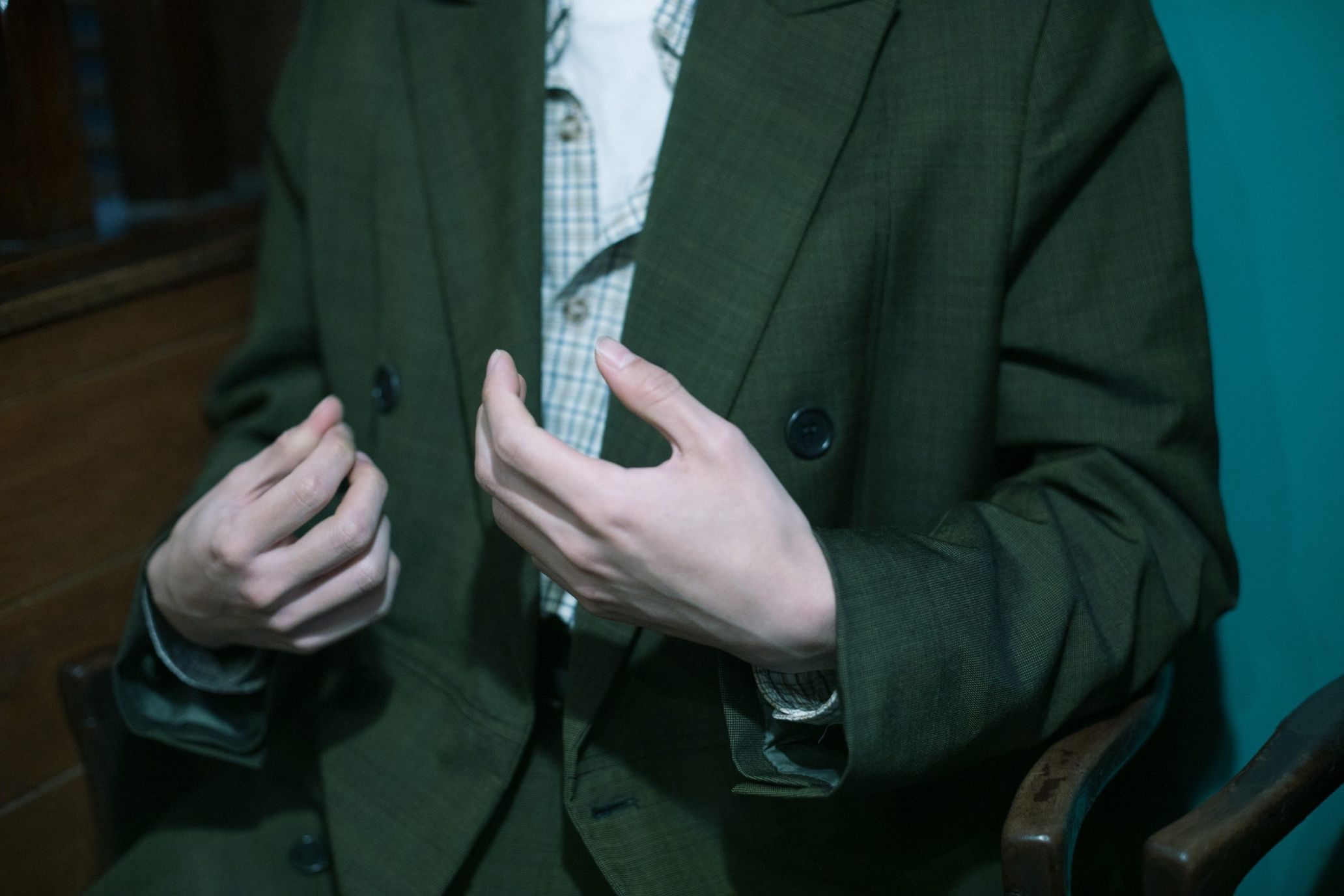
What Ko Machida taught me about words
–I’ve seen that the fans of betcover!! from overseas are talking about your songs enthusiastically on YouTube. Maybe that’s because we can now listen to various foreign sounds. I’m pretty sure the premise on which this is happening is that everyone now has easy access to Fishmans’ music. What do you think?
Yanase: I don’t know. It’s like, “Yay! I’m so happy.” But I love Japan, so I’m happy my music is conveyed as a culture.
–I wonder if people overseas are listening to your music because it has some kind of Japanese-ness. What exactly do you like about Japanese culture?
Yanase: The language. I’m not very good at talking because my words are light. So I can’t really talk about myself. That’s why I write songs, though. But when it comes to words and poems, ……well, yeah, they are important.
Also, it’s great that you can use ambiguous expressions. Especially in terms of lyrics, the subject and predicate are not clear. Japanese can be conveyed even if the order of the words is changed to some extent, and there are various ways of arranging words. Depending on the combination of words, the interpretation can be totally different. Also, it is incredible that there are so many words that indicate “You.” In English, there is only “You,” but in Japanese, there are “Kimi, Anata, Ware, Temee, and Kisama.” You can choose anything, and everything has a background, right?
–Yeah, you’re right.
Yanase: That’s why I reorder all the lyrics afterward, hoping the message will be conveyed even if there is such a disconnection.
— Why do you intentionally vague the nuance so that it’s not too obvious?
Yanase: Because I don’t want people to understand everything. In this day and age, everything is very clear. Like good image quality, high pixel count, or clear sound. Like good image quality, high pixel count, or clear sound. But if we wonder whether what is not clear is nostalgia, it may not really be so. That might be similar to saying that this kissaten is less clear than the nationwide coffee shop chain Doutor, but it is not nostalgia.
When I had a conversation with Mr. Kou Machida, he taught me about language. He said, “When we were young and making music, we couldn’t see 10 meters ahead. We could do anything because it was pitch black. Now we can’t do that because we can see everything.” When I was in middle school, we already had smartphones. So I’m not too fond of things that are too convenient or too organized. I think things that are not organized or vague sound fresh.
–Do you think the reason for the response from overseas listeners after Jikan is because there is some kind of Japanese-ness in that nebulous image?
Yanase: Who knows? I wonder how the Japanese sound is perceived by people overseas. But on the other hand, we also understand the nuances of foreign songs, don’t we? I think I do. I like Brazilian music, such as Gal Costa. Of course, it’s not in Japanese, but I can understand the soul of their music. It can be conveyed just by the way it sounds. I like that kind of music, and I hope my music is like that.
Right now, after Japan, I have the most listeners in South America for some reason. I would also like to participate in events overseas eventually. I hope to be invited and perform it in places that defy expectations.
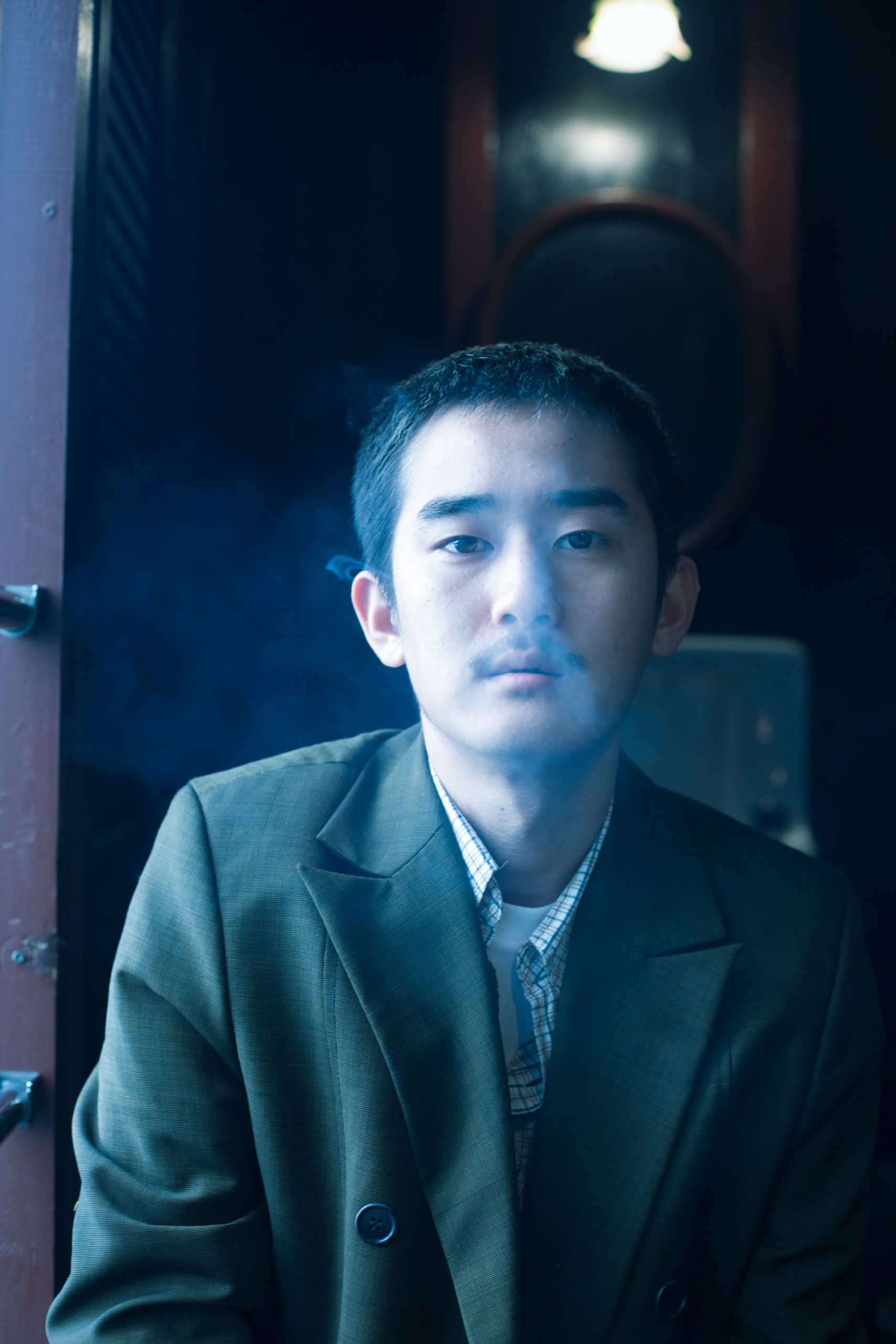
Photography Mayumi Hosokura
Translation Shinichiro Sato

